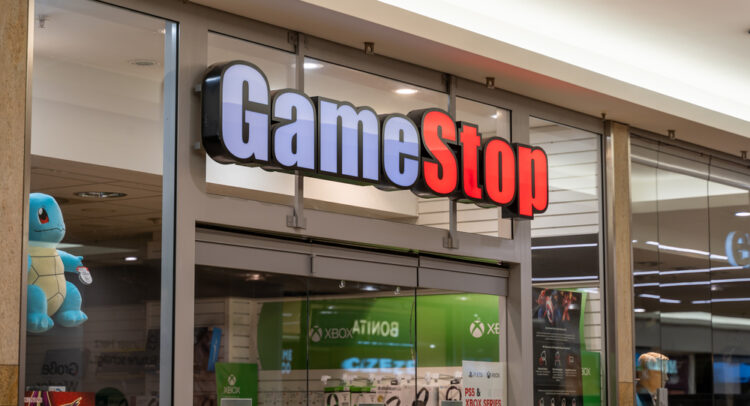Shares of the specialty retailer GameStop (NYSE:GME) are down about 8.29% year-to-date. The company recently reported mixed Q3 earnings. Meanwhile, the Board of Directors has granted CEO Ryan Cohen and the management team the authority to manage the company’s portfolio of securities, which includes the option to invest in other equities. While it is surprising that the company will utilize its cash to buy shares of other companies alongside its own, it led us to wonder: who owns GME?
Elevate Your Investing Strategy:
- Take advantage of TipRanks Premium at 55% off! Unlock powerful investing tools, advanced data, and expert analyst insights to help you invest with confidence.
Now, according to TipRanks’ ownership page, GME is mostly owned by Public Companies and Individual Investors at 52.28%, followed by Other Institutional Investors, insiders, and mutual funds at 19.83%, 18.07%, and 9.83%, respectively.

Digging Deeper into GME’s Ownership Structure
Upon digging deeper into institutional ownership, Vanguard stands out as the top shareholder of GameStop stock, holding a stake of approximately 8.03%. Following closely is Vanguard Index Funds, with a notable ownership stake of 7.58% in the company.
While insiders hold a considerable stake in the company, their confidence signal remains Negative. On the contrary, investor sentiment remains Positive on GameStop stock in the short term. However, of the 707,536 portfolios monitored by TipRanks, only 0.2% have invested in GME stock. This limited participation suggests investors aren’t confident about GME’s long-term prospects.
What is the Outlook for GameStop?
Wedbush’s Michael Pachter is the only analyst offering a 12-month price target for GameStop in the last three months. Pachter is bearish about GME’s prospects and reiterated a Sell rating on the stock on December 7. Further, Pachter called management’s decision to delegate the “authority to manage the company’s portfolio of securities to its CEO” as an “insane move.”
The analysts’ price target of $6 implies a downside potential of 64.76% in GME stock from current levels.

Bottom Line
The ownership structure of GameStop stock reflects a balanced mix of institutional, retail, insider, and individual investors. GME stock is under pressure amid a weak macro environment. However, its focus on reducing costs is a positive. However, there is a notable concern regarding management’s decision to allocate cash for investments in the equities of other companies, especially if they truly believe in the inherent value of GameStop’s shares.
















